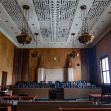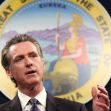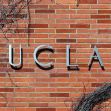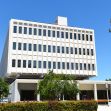After receiving a complaint from a whistleblower, three professors from the UCLA School of Dentistry were investigated for soliciting unauthorized fees from international students from Middle Eastern countries. The professors, who were identified only as John Doe et. al., entered into settlements with the University that had hired a law firm to investigate the alleged misconduct.
The Los Angeles Times wanted to see the 60-page report of the investigation prepared by the outside, independent law firm of Hueston Hennigan LLP, so they filed a request under the California Public Records Act (CPRA) asking for not only the report, but all materials related to the original whistleblower complaint, as well as UCLA’s notice of intent to fire the faculty members. The CPRA provides for a right of access to public records, and UCLA is a public university.
In July 2022, Los Angeles Superior Court Judge Mitchell L. Beckoff denied the professor’s request for a preliminary injunction that sought to block the release of their requested materials. The Times appealed, and a judge from Division Eight of the Second District Court of Appeal issued a stay that ordered the University to refrain from releasing the materials. On June 7, the matter was resolved, saying, “The Regents shall release the report and other records, unless the California Supreme Court orders otherwise.”
The unanimous 3-0 decision to release the report was made by Acting Presiding Justice Elizabeth A. Grimes with concurrences by Justices Victor Viramontes and John Shepard Wiley, Jr. It ruled that Beckoff’s 2023 order that prohibited the UCLA Regents from releasing any portion of the Hueston Report shall expire 30 days from the date their opinion was filed. After the expiration date, the Regents are to release the report “unless the California Supreme Court orders otherwise.” The Regents and The Times are to recover their costs.
The opinion began with a recitation of the facts. It explained that Hueston Hennigan had interviewed a total of 44 UCLA administrators, faculty, staff, and former students and had read hundreds of thousands of emails and other documents as well as many financial reports, which were “analyzed by a professional forensic accountant” hired by the law firm. It also interviewed the professors and reviewed the documents they gave to the law firm. The extensive report “concluded (the three professors) engaged in improper government activities under the University of California Policy on Reporting and Investigating Allegations of Suspected Improper Government Activities.” It said two of the professors violated University policy as well as the State’s conflict of interest laws. The other professor “retaliated” against his fellow faculty member in violation of the US Faculty Code of Conduct, and another professor was found to be “involved in harassing activities.”
The Times wrote a news story that said, “After investigating the allegations, a law firm commissioned by UCLA issued a report that concluded the professors targeted Middle Eastern students believing their wealthy government sponsors “could—and would—pay for it.” It refers to spots in the Dental School’s “highly selective orthodontics program.”
UCLA submitted a formal charge against one professor and issued “notices of intent to dismiss” to the other two. It is the latter two who are plaintiffs in the appeal. As stated earlier, all three of the professors settled with the Regents and resigned their employment. The following year, a former UCLA employee requested the Hueston Report. All three professors objected and filed writs of mandate to stop disclosure. Trial Judge Beckoff denied all three writs, finding that the professors did not meet their burden to prove that the report was exempt from disclosure.
The trial court had explained that UCLA is a public university and thus occupies a “position of trust.” It also commented that the allegations of misconduct were “unquestionably serious and substantial” and the public has “a strong, legitimate and weighty interest in knowing whether and how the university enforces its rules.” The professors all appealed.
In July 2022, the Times made its own CPRA request, and the professors again filed for a writ to stay the newspaper’s request, which led the appellate court to order the Regents not to disclose any materials related to the Hueston report. Grimes explained that disclosure should be withheld while the professors’ appeals were pending, and “as of this writing…those appeals may not be fully briefed and ready to be heard until late this year.” The back-and-forth continued. In September 2022 the Regents told the professors they intended to release the report. In October 2022, the professors sought a temporary restraining order, which the trial court denied in November because the “plaintiffs had no likelihood of success on the merits…”
Grimes’ opinion next shifted to a discussion of what is needed for a preliminary injunction and stated that the trial court’s decision should be honored unless there was an abuse of discretion. Here, there was none. She then turned to the question of whether disclosure under the CPRA which, “does not require disclosure of personnel…files… would constitute an unwarranted invasion of privacy.” She added that the exemptions are narrowly construed and permissive, not mandatory. But they “do not prohibit disclosure.”
None of plaintiffs’ arguments were found to be persuasive. They argued that other matters regarding the Hueston Report should be decided first and that denial of the preliminary injunction was an abuse of discretion. But they failed to establish the probability of success on their claims and did not give any supporting authority for their arguments. Instead, the plaintiffs “merely describe their privacy interest in the records.” Grimes wrote, “Indeed, plaintiffs fail completely to state or acknowledge the applicable standard for weighing “an individual’s privacy rights against the public’s right to know of an alleged wrongdoing for purposes of” the personnel records exemption.”
The opinion ended by saying the court was “left with no basis to conclude there was any error in the trial court’s reliance on its previous order.” The Hueston report must be disclosed. The plaintiffs did now show they will ultimately prevail and they “are not entitled to injunctive relief.”






